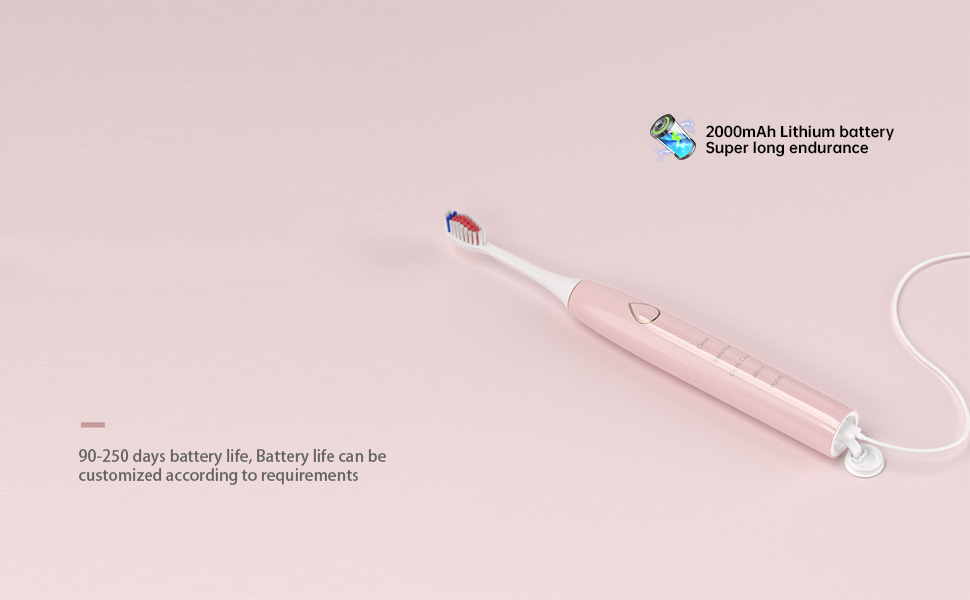The battery life of an electric toothbrush is a crucial factor for consumers, especially for those who travel frequently or use their toothbrush multiple times daily. With advancements in technology, the battery life of electric toothbrushes has significantly improved, but there are still notable differences across different electric toothbrush manufacturers. In this blog, we will explore the average battery life, factors that contribute to variations, and how to choose a toothbrush that best meets consumer needs.
Average Battery Life of Electric Toothbrushes
Most electric toothbrushes on the market offer a battery life ranging from 7 days to 6 weeks on a single charge, depending on the model and usage patterns. Basic models typically last around 7–14 days, while premium models with advanced features can last up to 9 weeks. Powsmart, as a high-end electric toothbrush factory with lithium-ion batteries built-in the electric toothbrush tend to perform better in terms of longevity compared to those using nickel-metal hydride (NiMH) batteries.
Factors Influencing Battery Life Differences
The electric toothbrush battery life difference can be attributed to several factors:
- Battery Type: Lithium-ion batteries, commonly used in modern toothbrushes, are lighter, more efficient, and last longer than NiMH batteries. Most of the time, the battery type is also a key factor affecting the toothbrush cost.
- Usage Frequency: Brushing twice daily for 2 minutes significantly impacts battery life, as frequent use drains power faster.
- Additional Features: Electric toothbrushes with Bluetooth connectivity, multiple brushing modes, or built-in pressure sensors consume more energy, resulting in shorter battery life.
- Motor Type: Sonic toothbrushes, known for their high-speed vibrations, often have slightly shorter battery life due to higher energy consumption.
Consumer Preferences and Usage Scenarios
The ideal battery life of electric toothbrushes varies depending on the consumer’s lifestyle:
- For Travelers: Models with extended battery life (4–9 weeks) are highly preferred, as they reduce the need for frequent charging.
- For Families: Toothbrushes with charging docks or those designed for shared use may have shorter battery life but compensate with convenience.
- For Daily Users: Features like quick-charge functionality can be appealing, even if the overall battery life is moderate.

Choosing the Right Electric Toothbrush
Understanding the electric toothbrush battery life difference can help consumers make informed choices. Manufacturers and retailers can highlight battery specifications prominently in their marketing materials to appeal to different user segments. Providing a range of options—from budget-friendly models with shorter battery life to premium ones with extended longevity—can cater to diverse customer needs.
Conclusion
The battery life of electric toothbrushes plays a vital role in customer satisfaction and product competitiveness. With innovations like fast charging and long-lasting lithium-ion batteries, manufacturers are continually enhancing the consumer experience. For businesses in the electric toothbrush industry, addressing battery performance in product development and marketing is essential to staying ahead in this competitive market.





